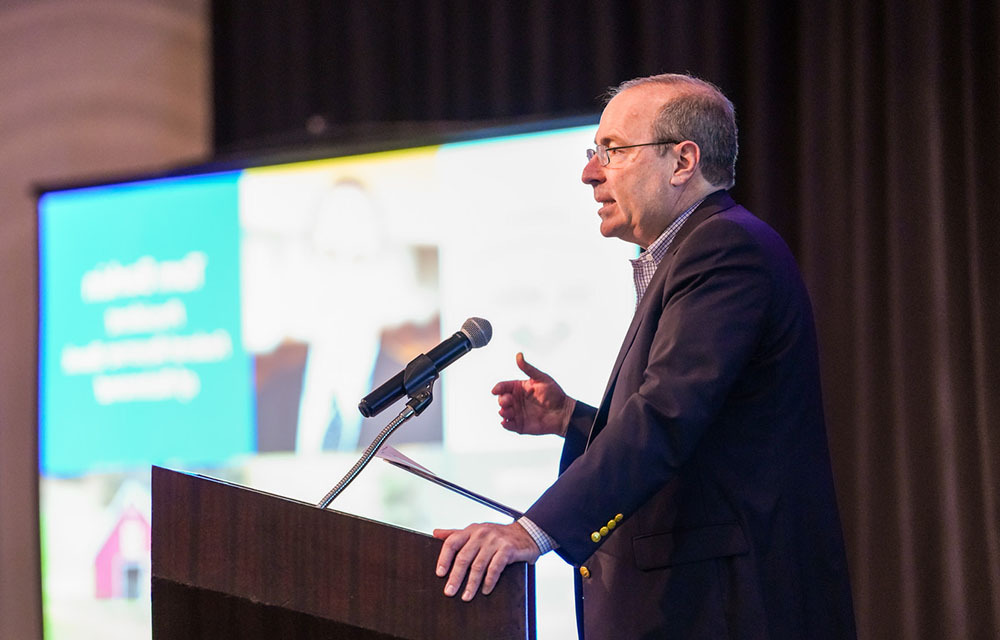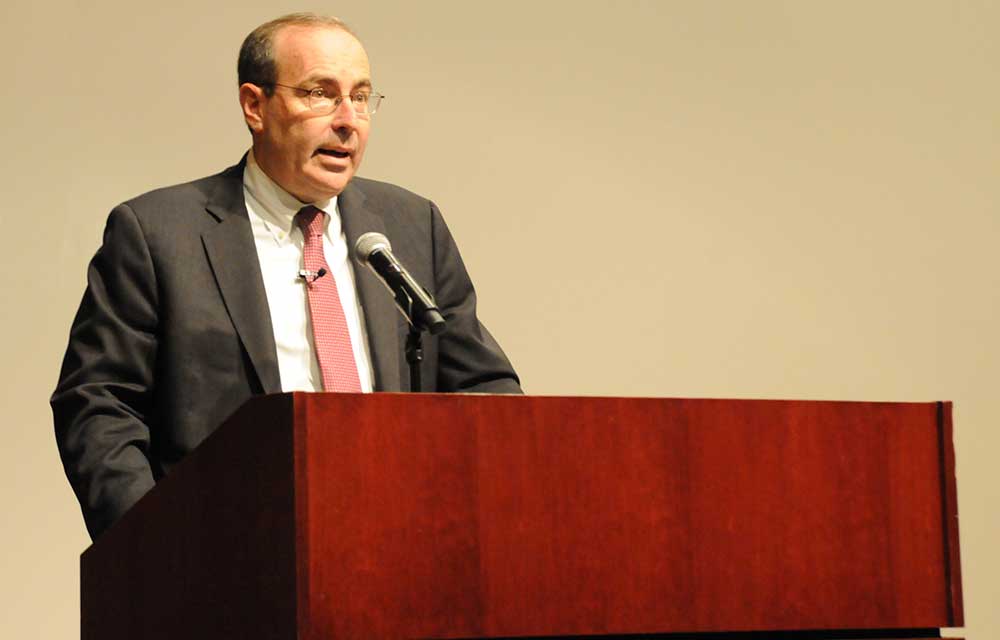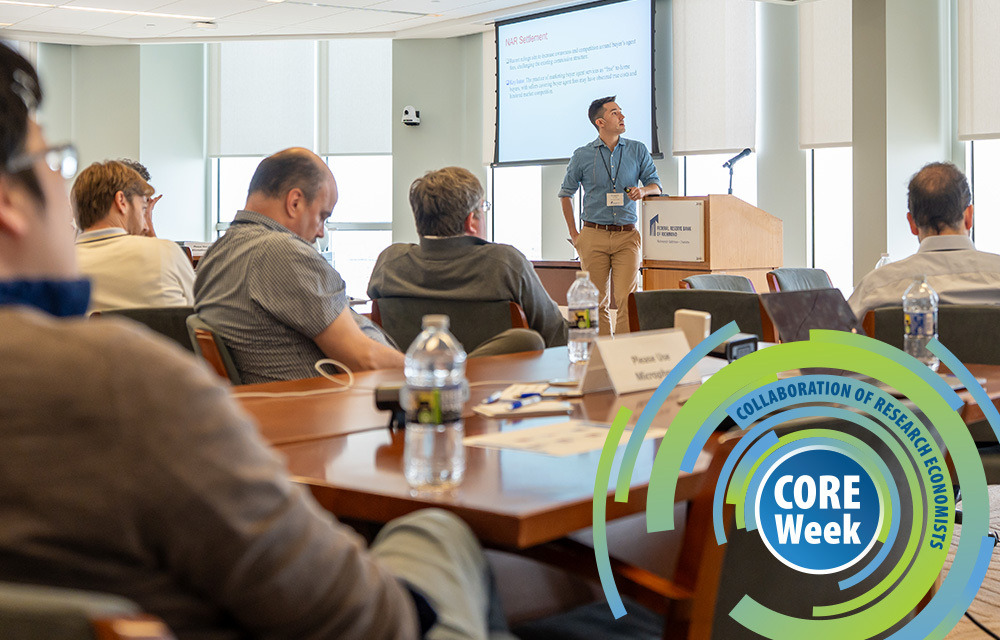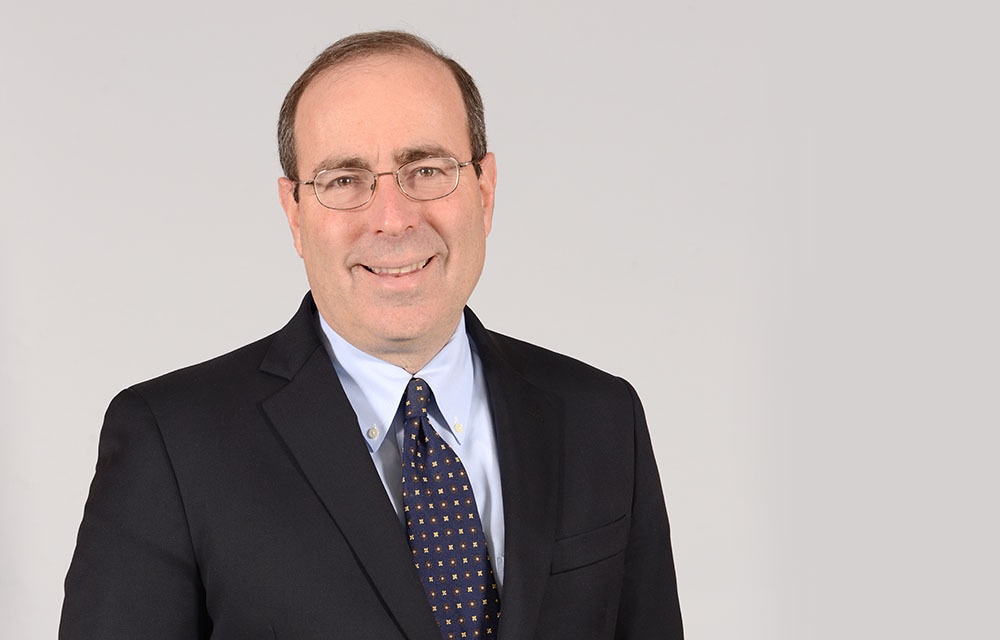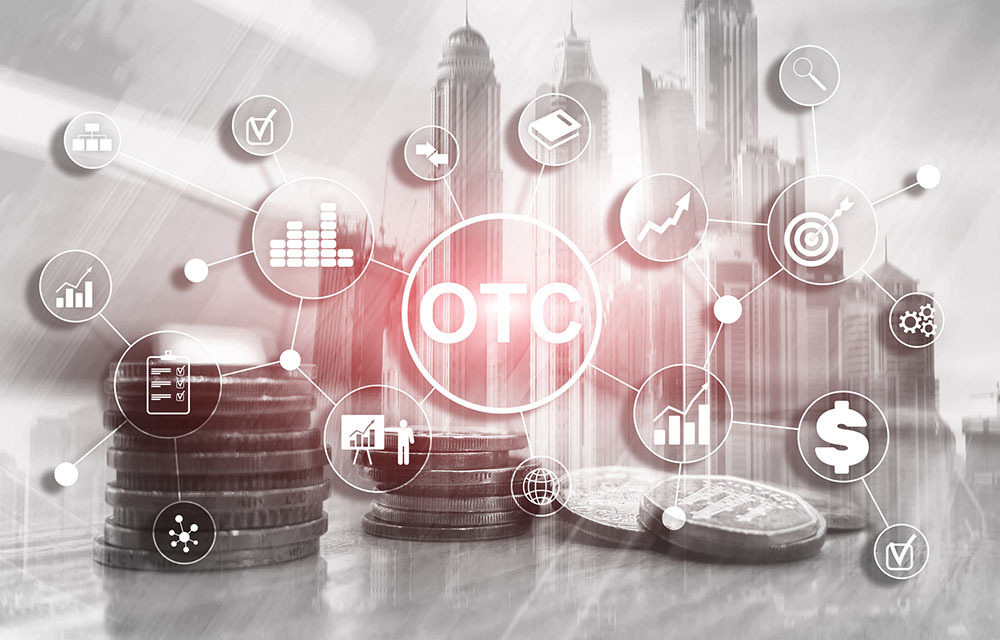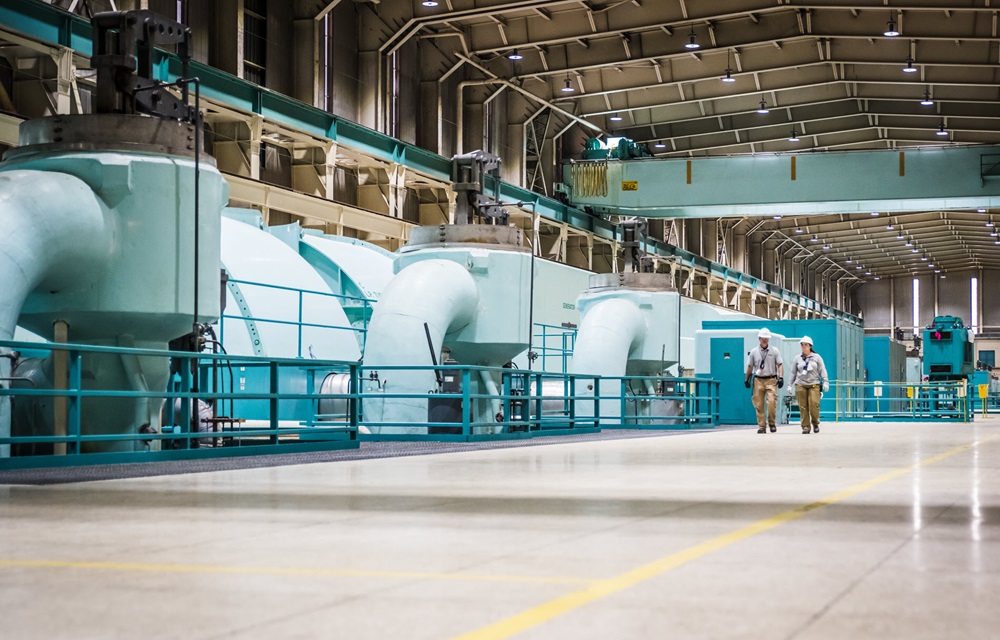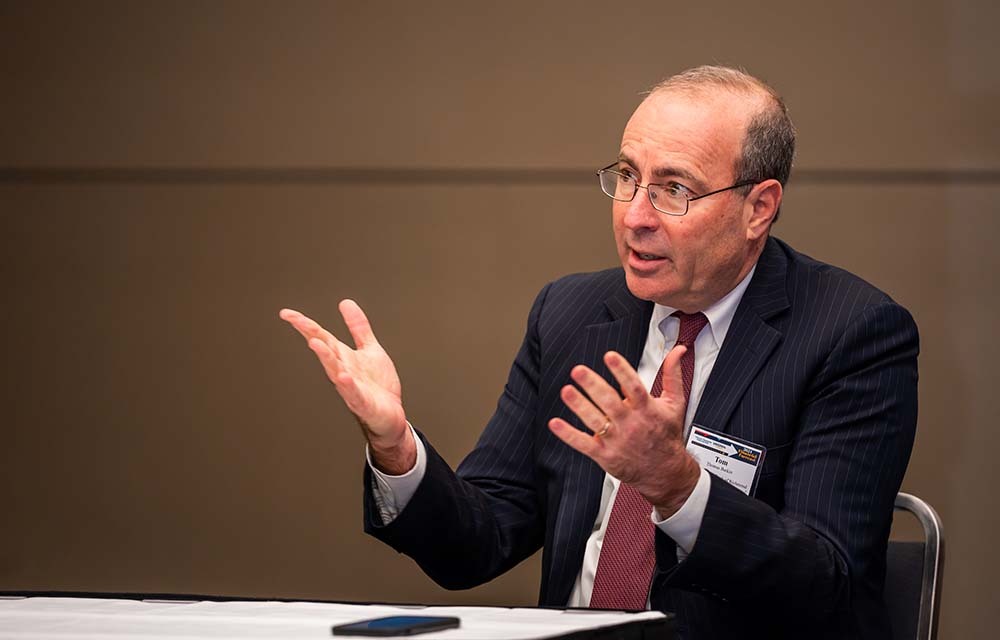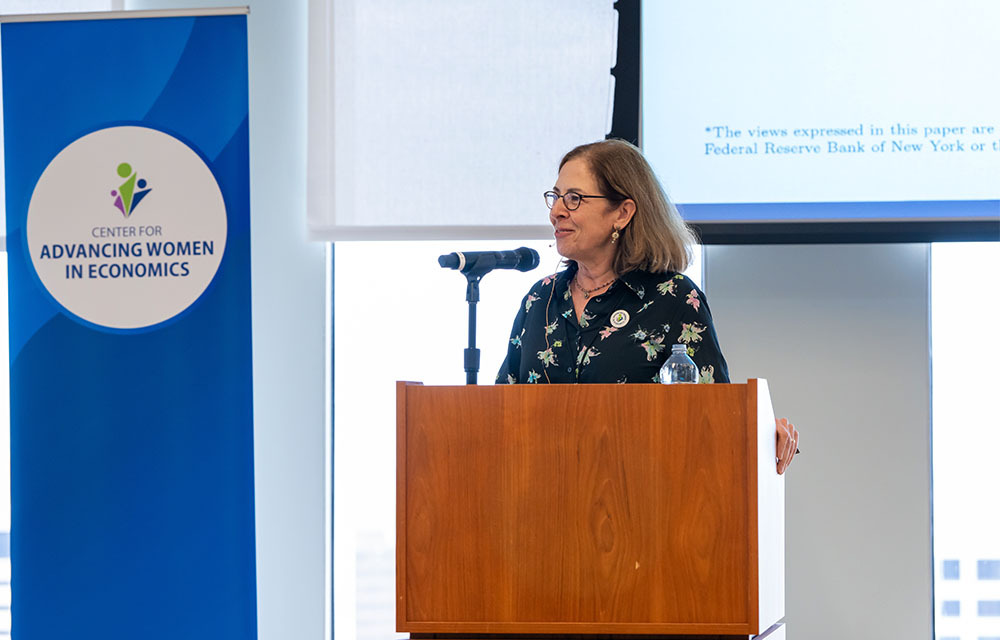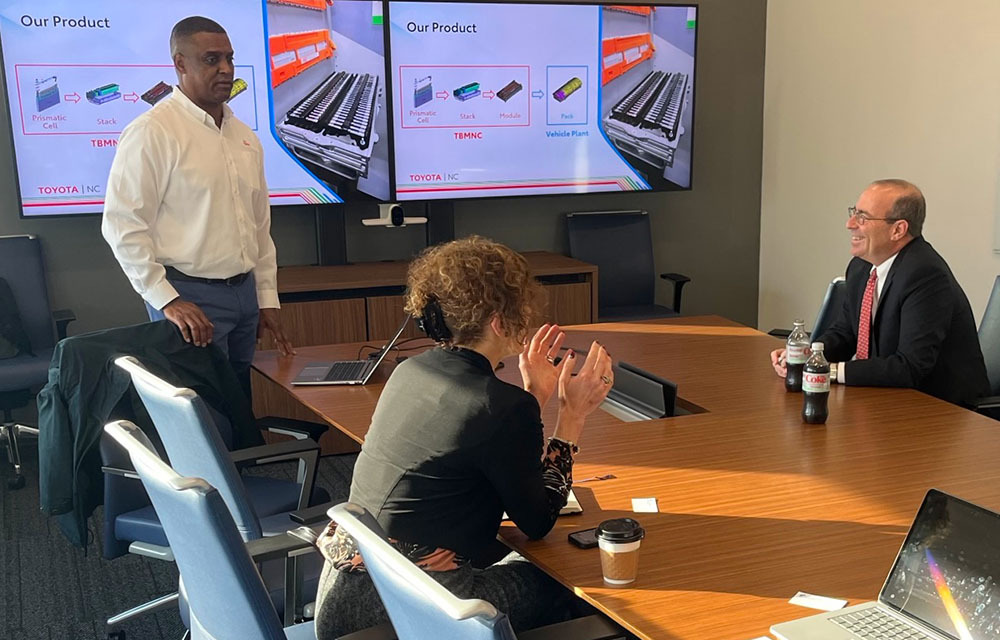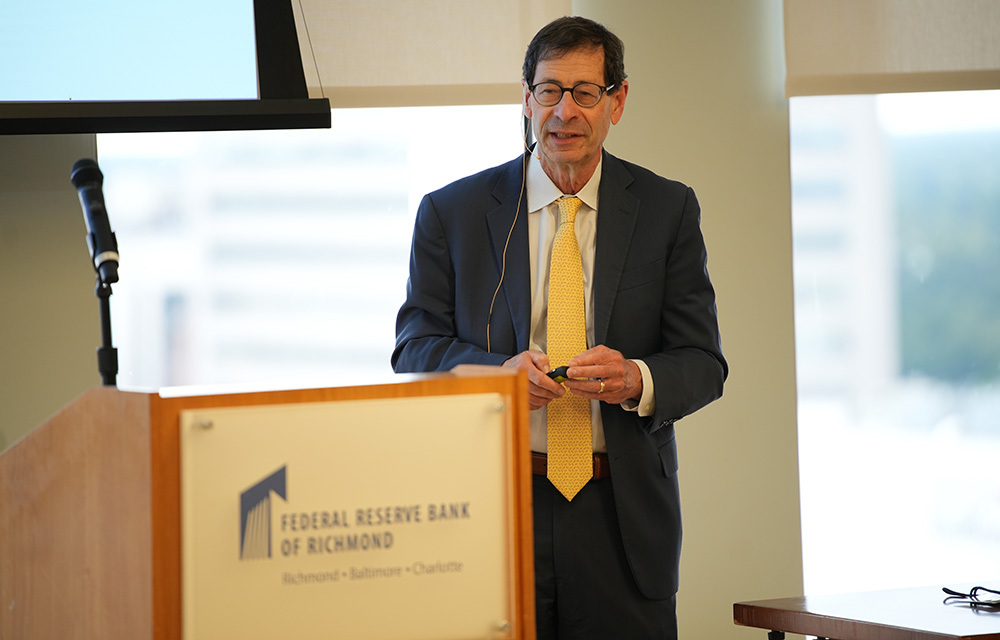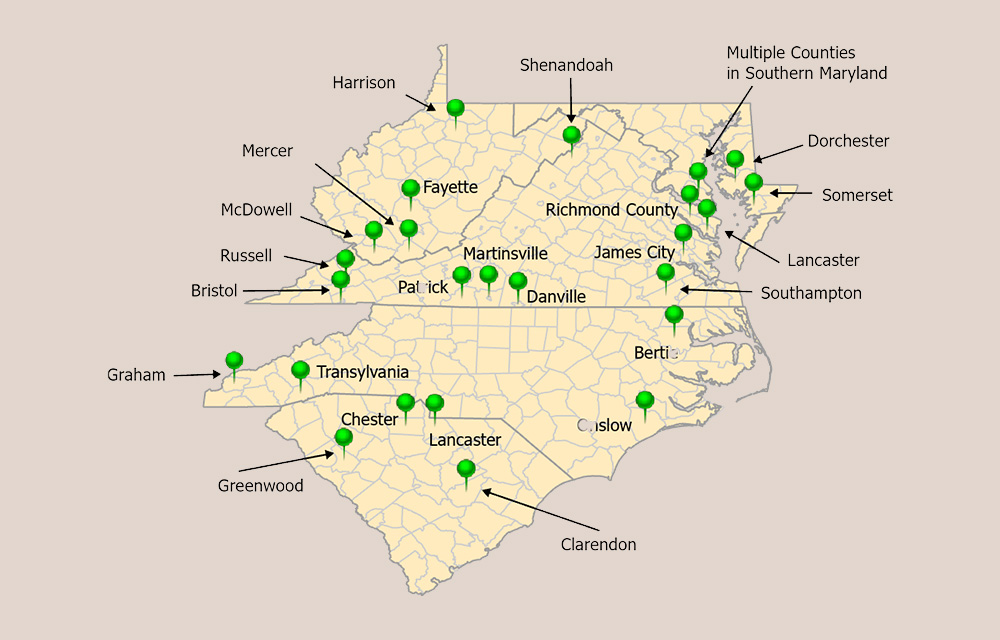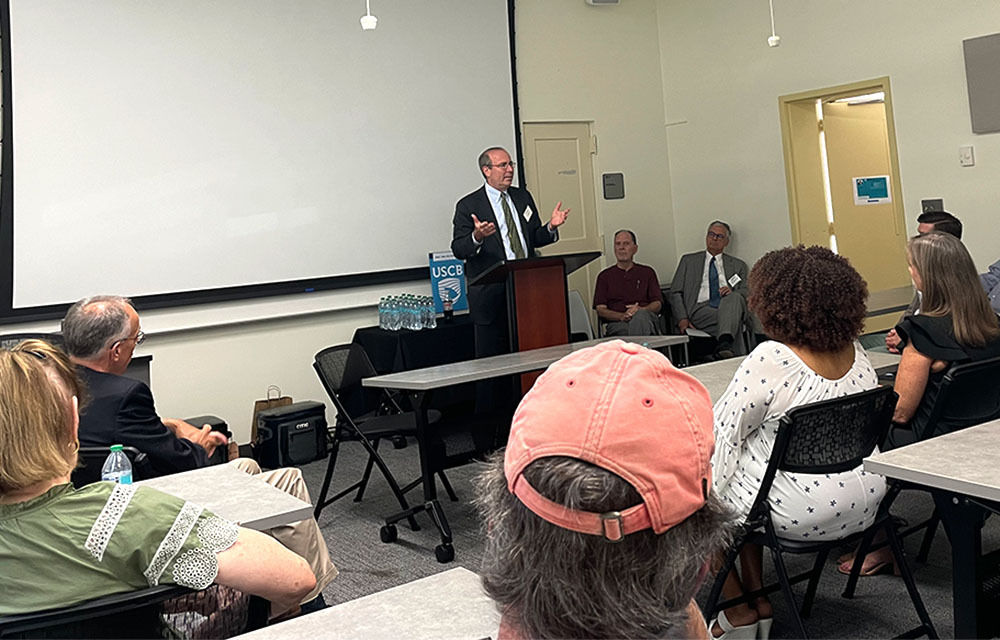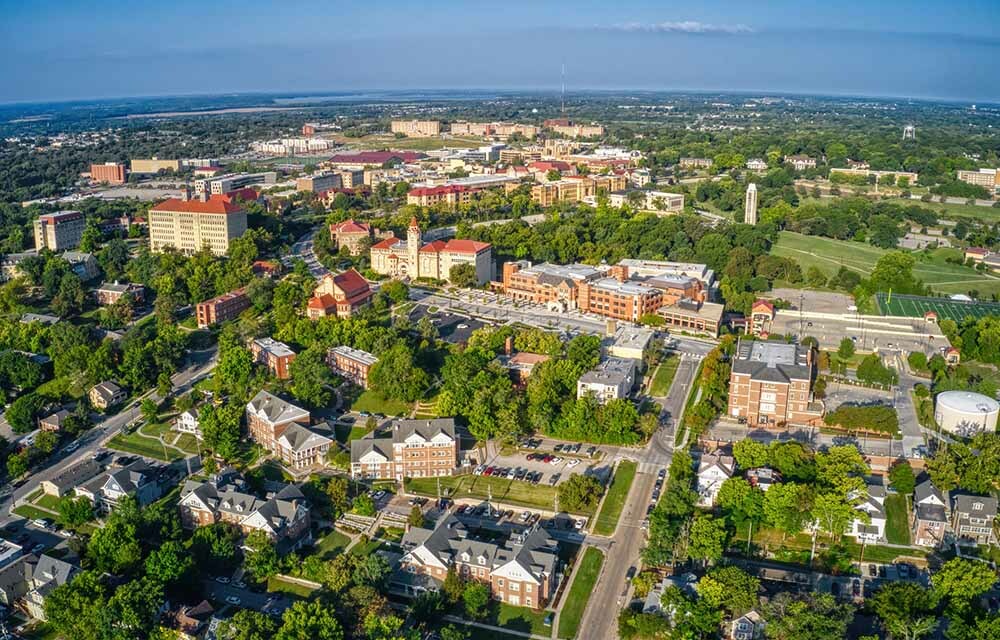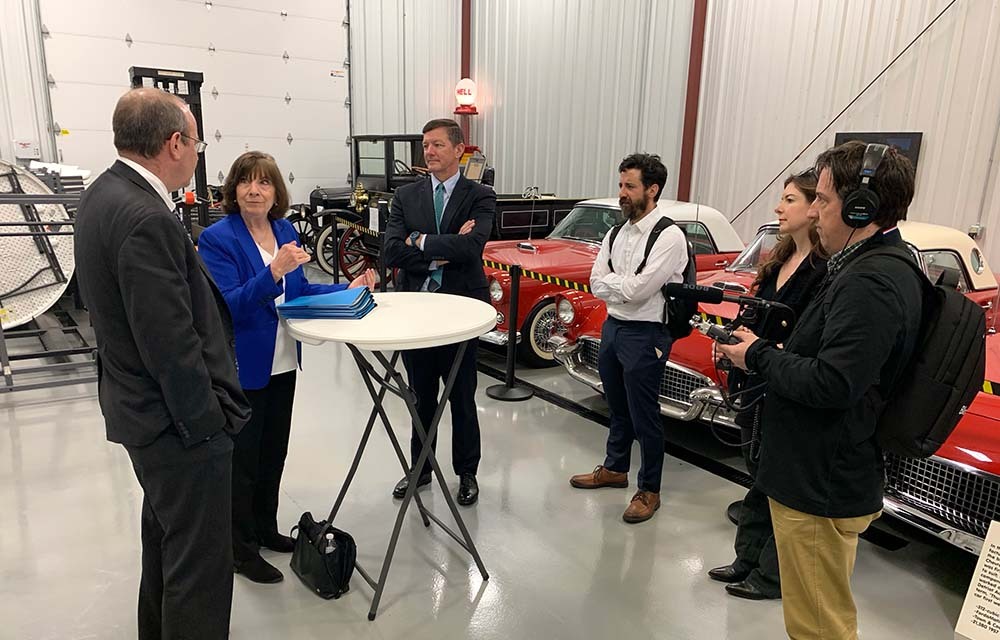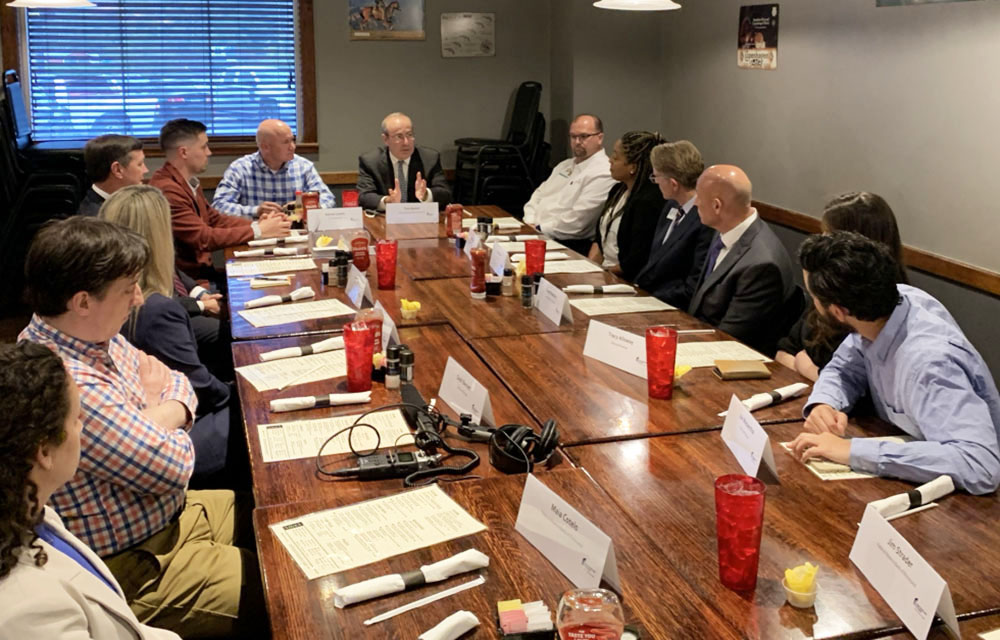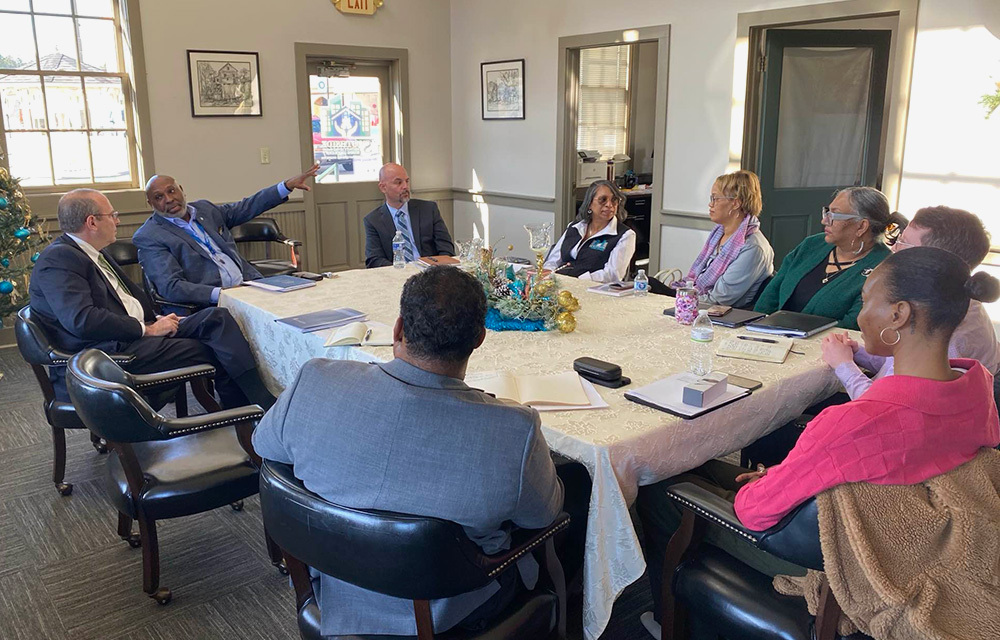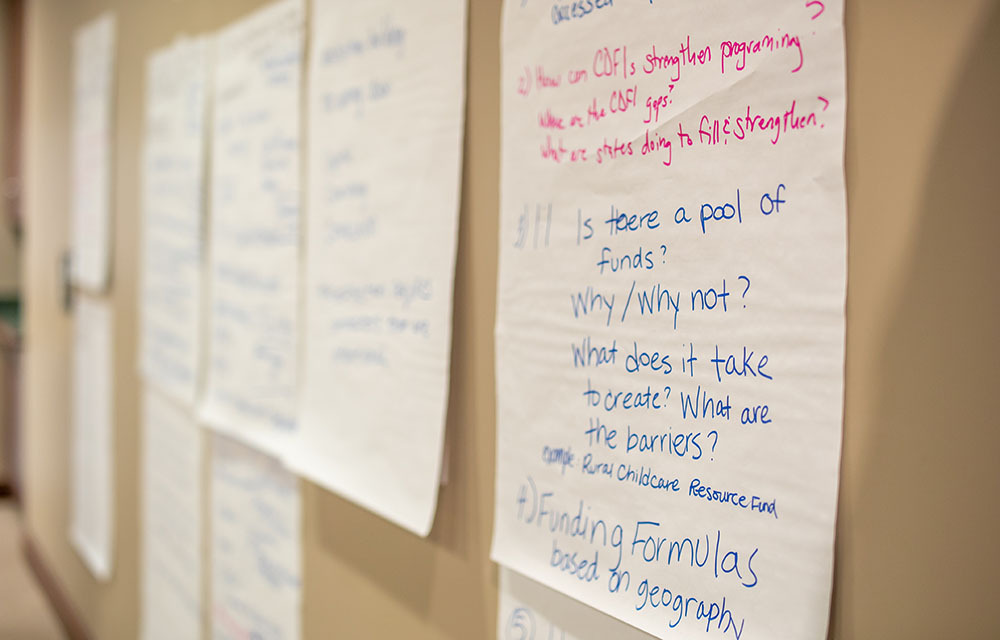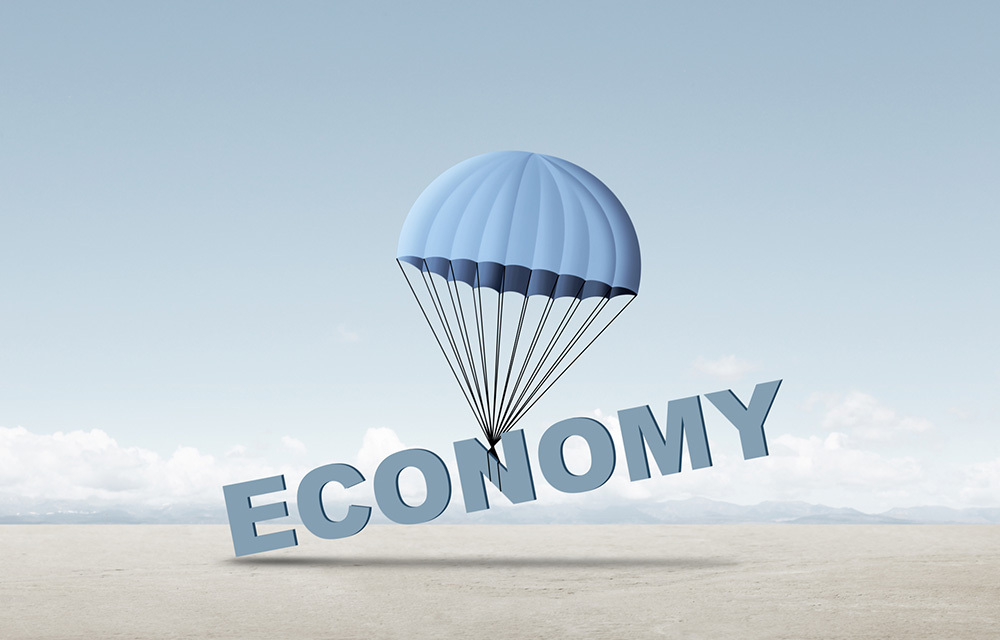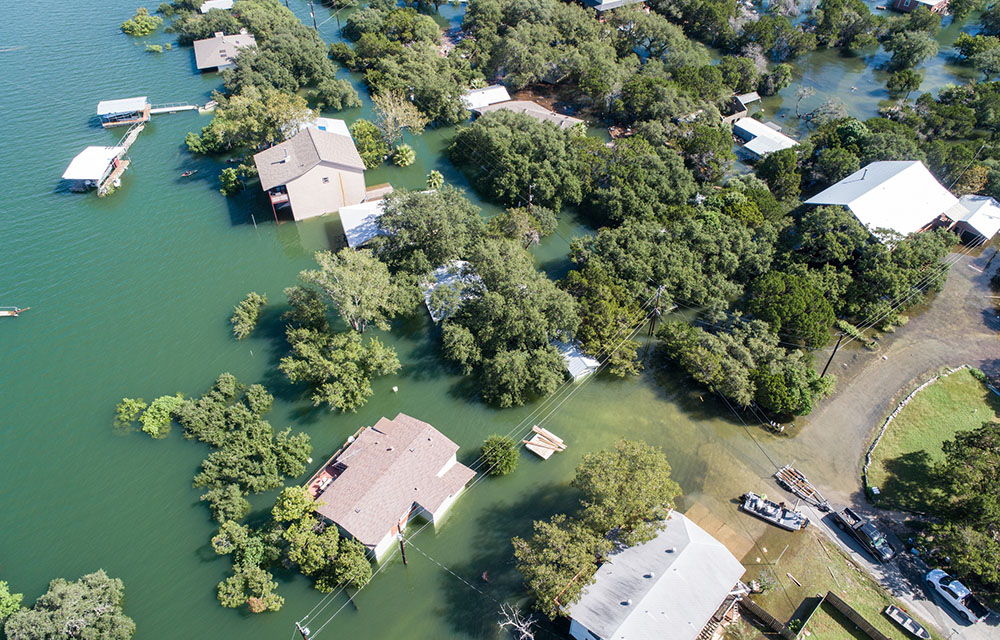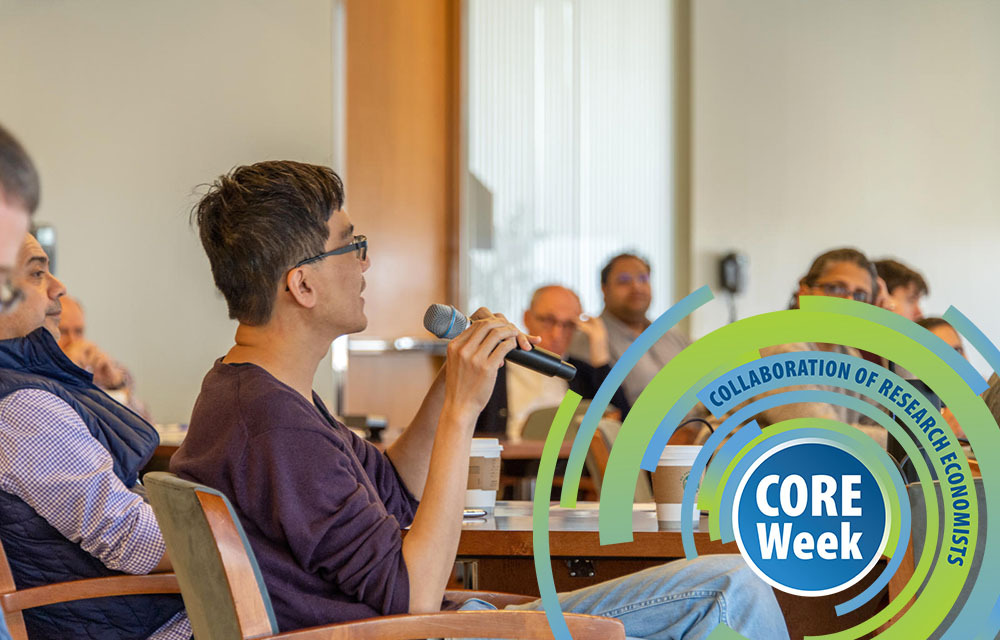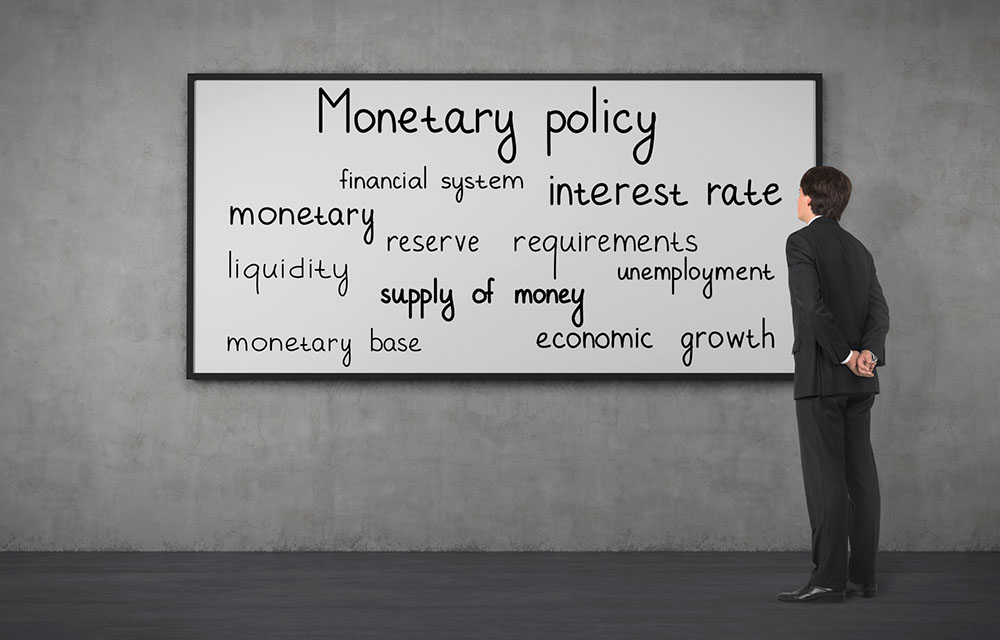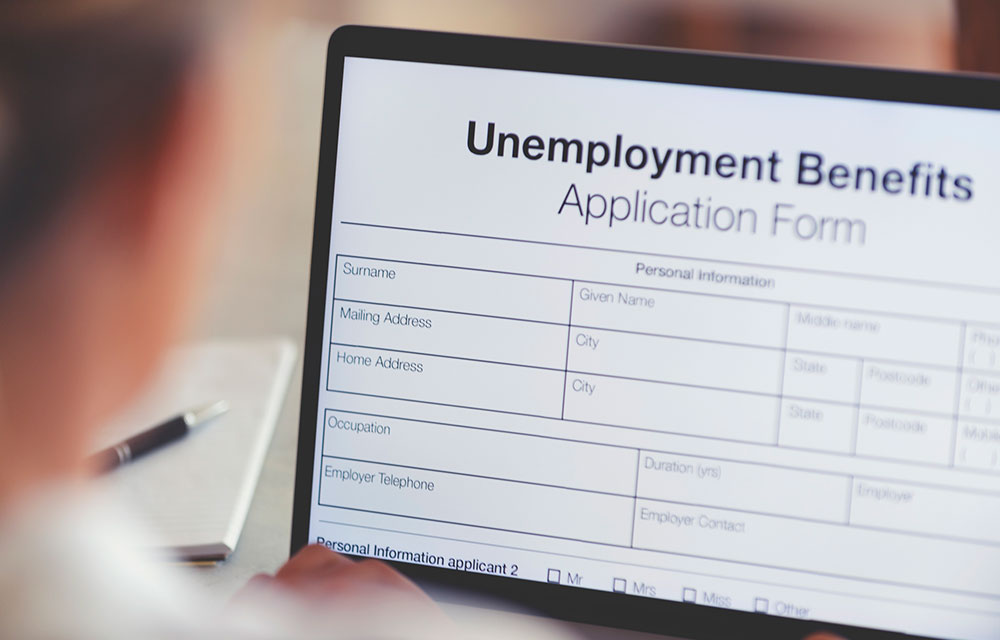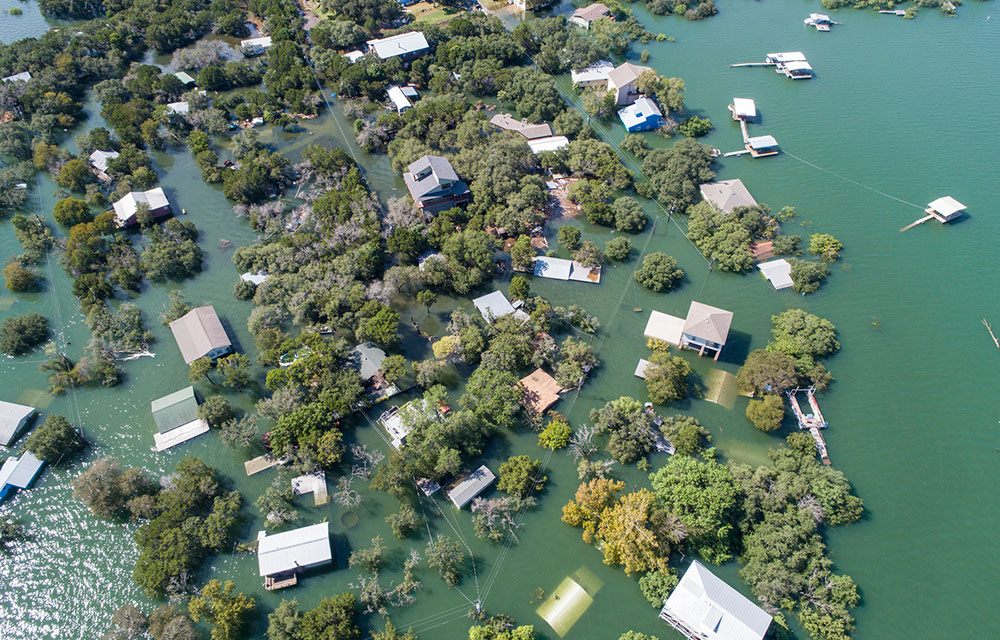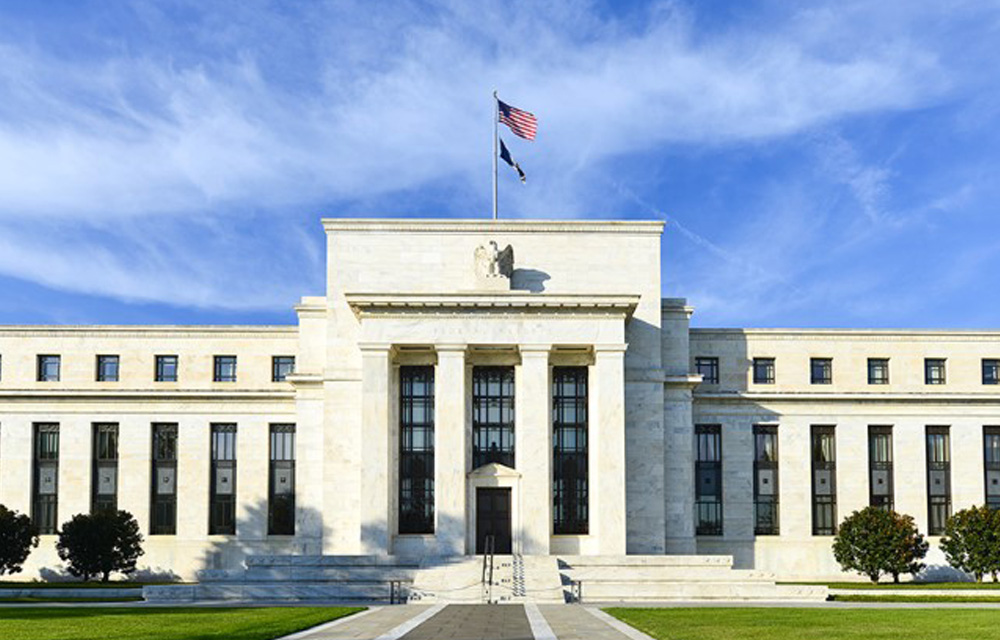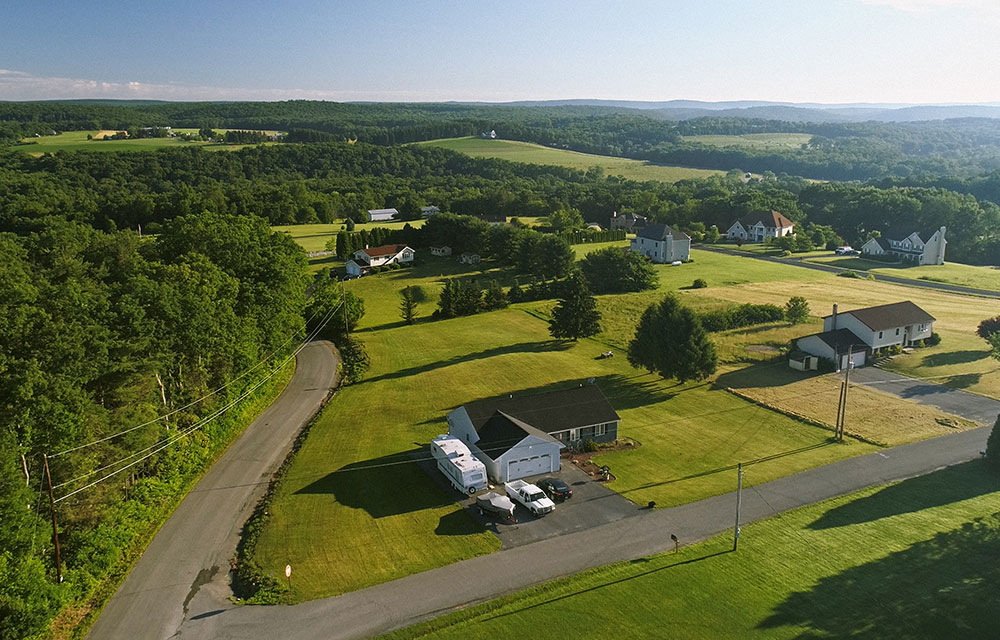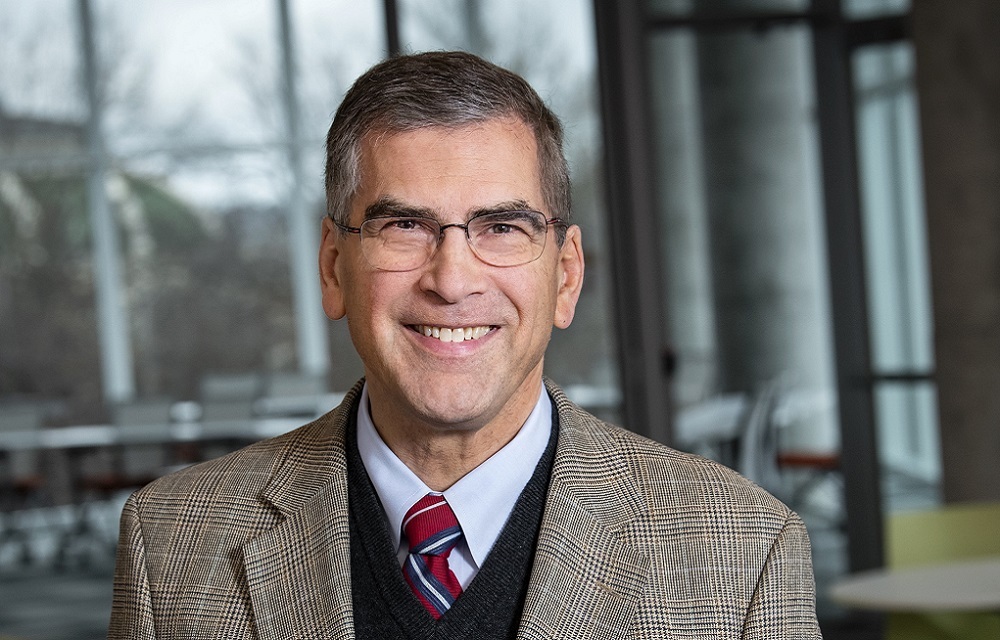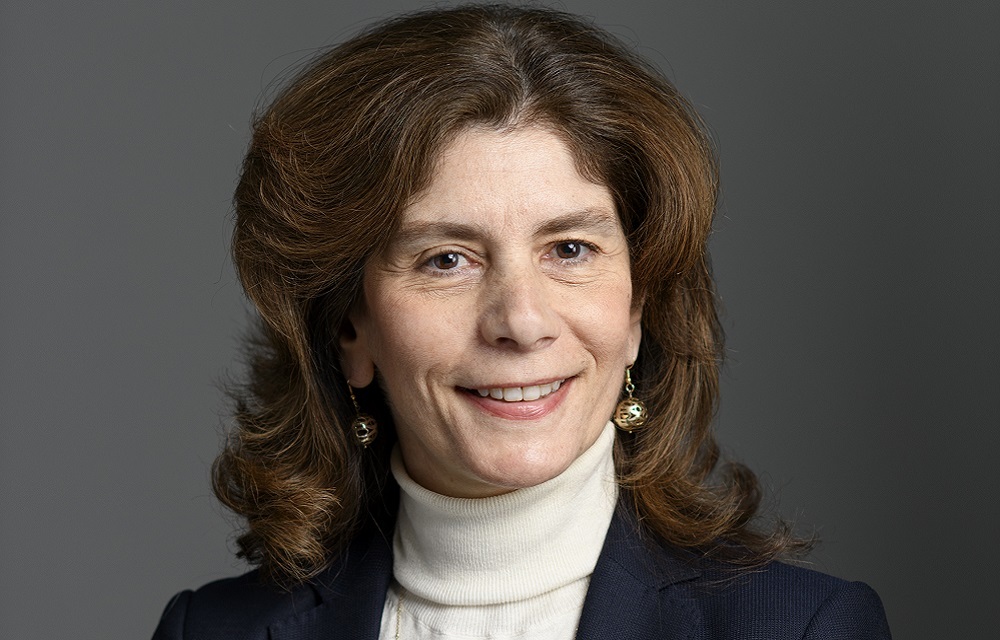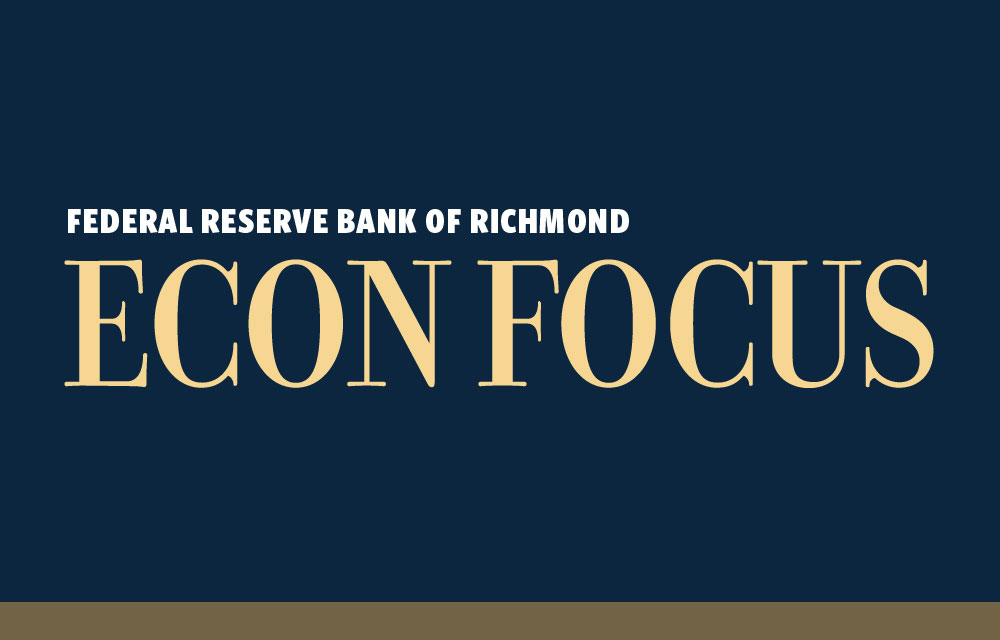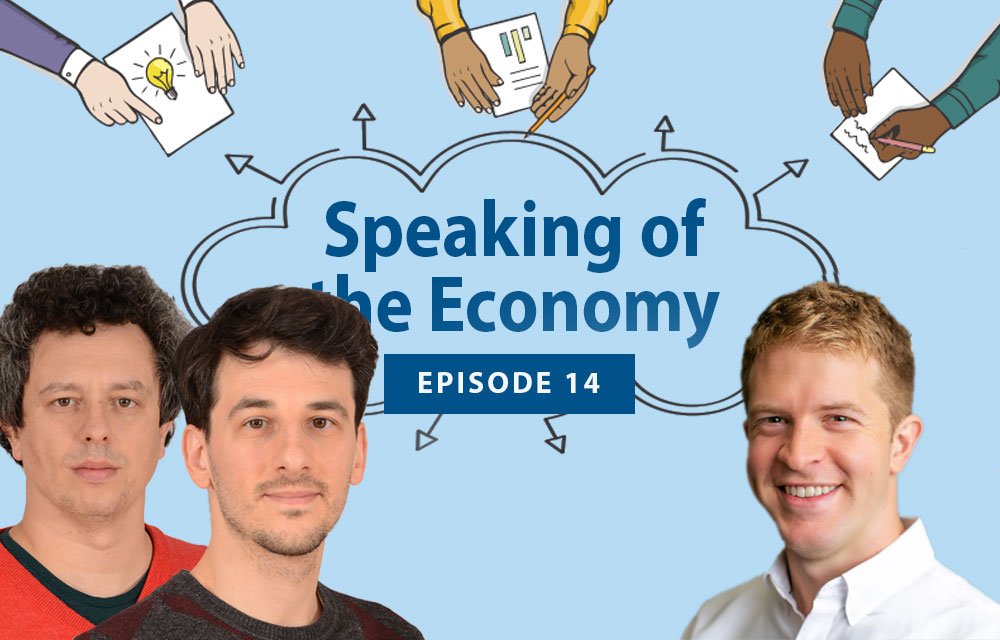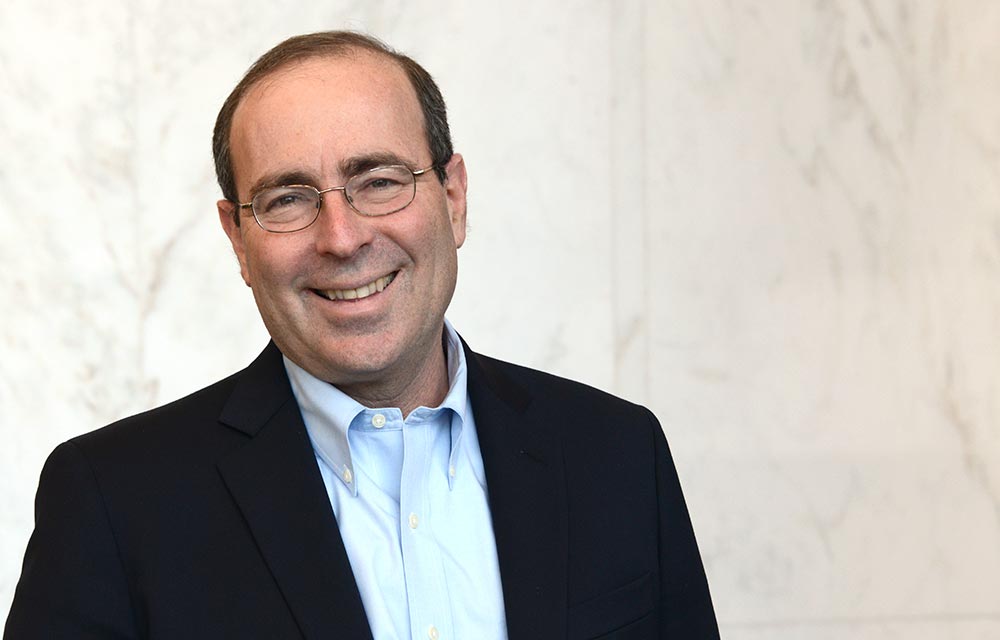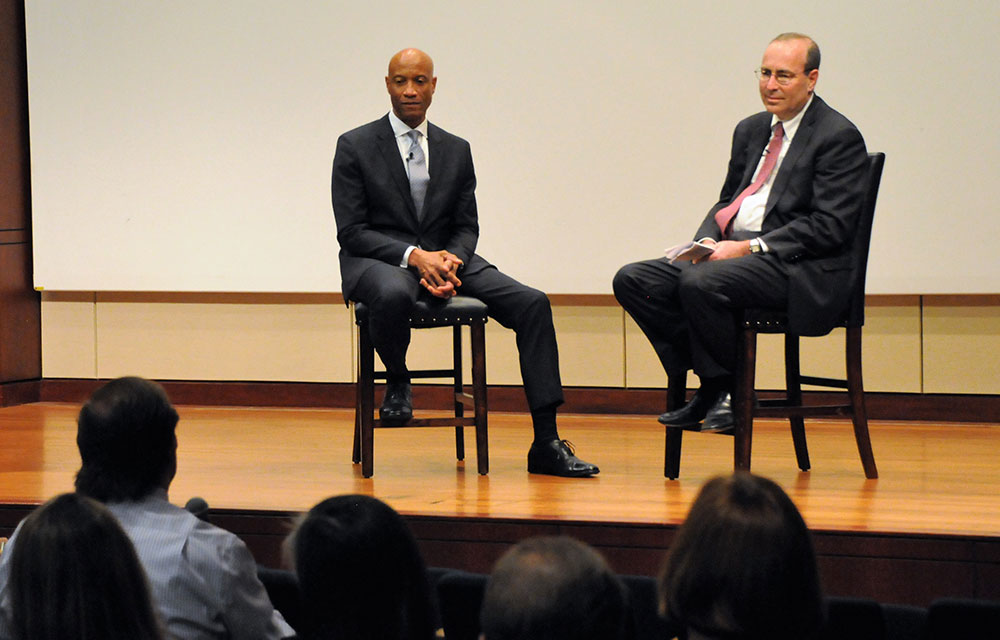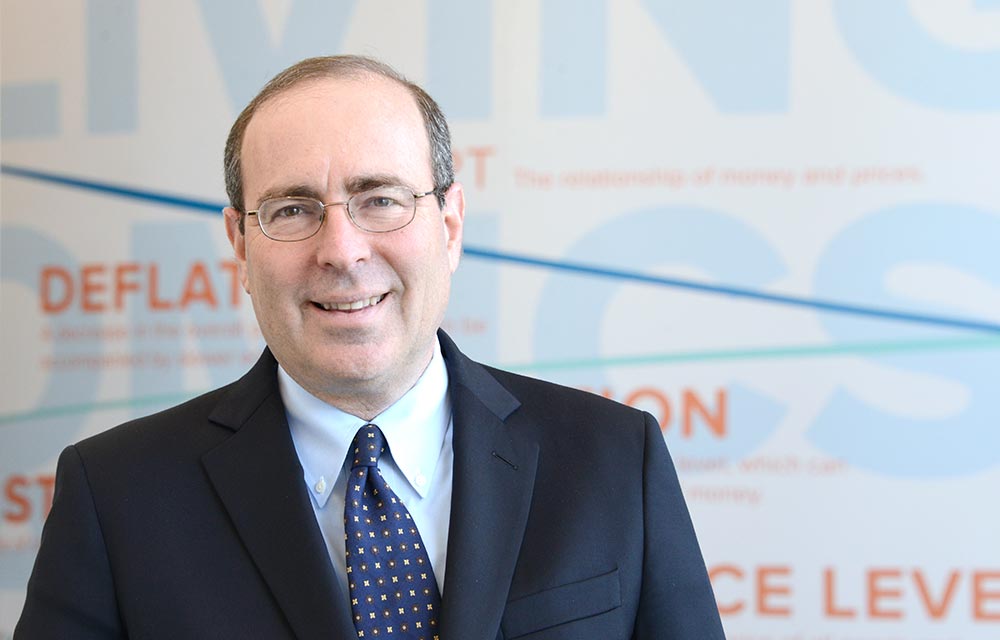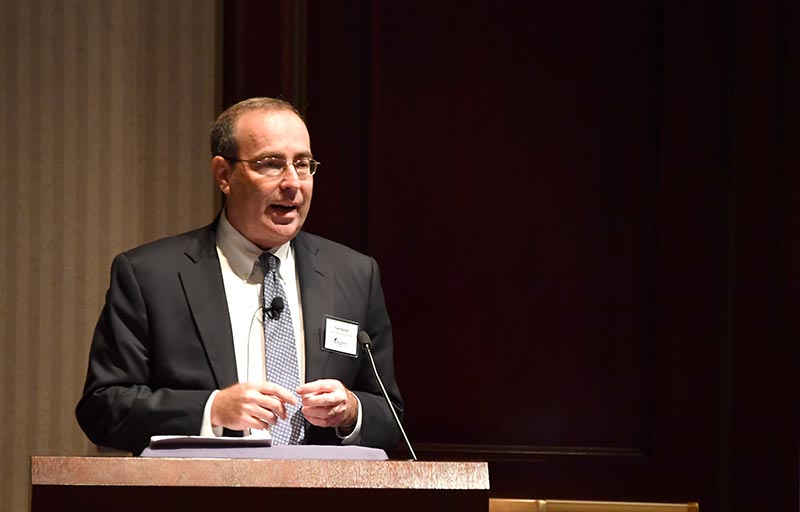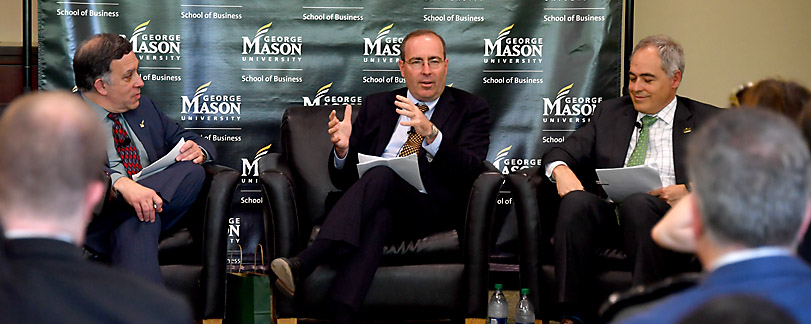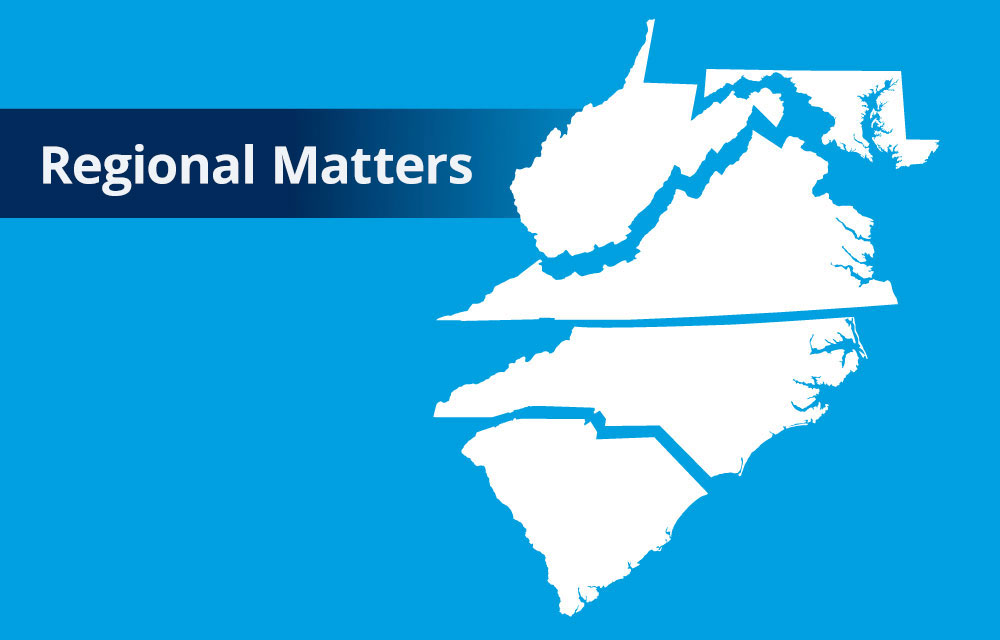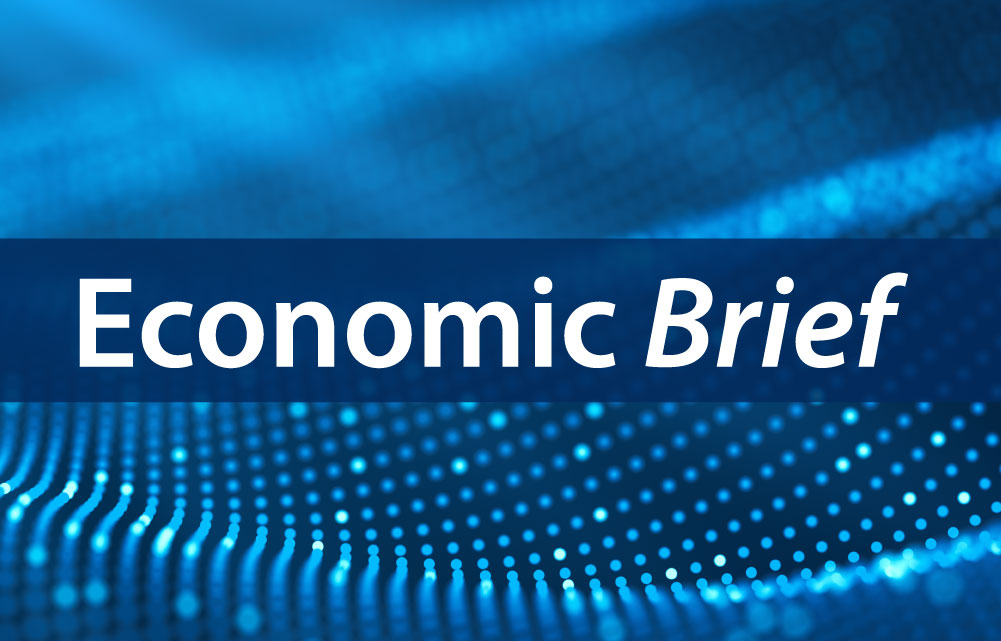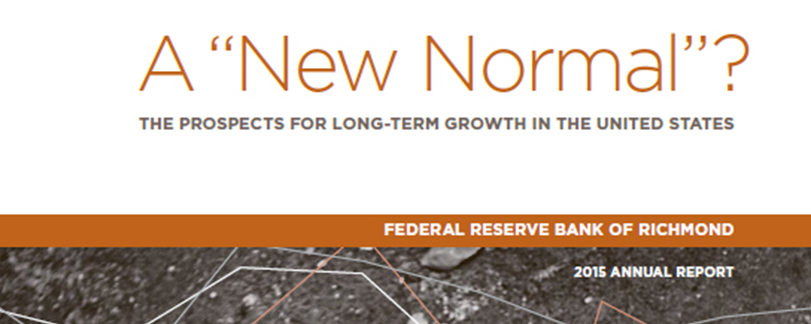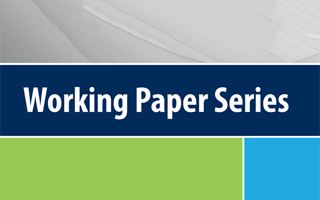The current business cycle episode does not fit neatly into historical templates.
Economic Growth

We look at the factors that contribute to a sustained rise over time in an economy's production of goods and services.
 Updating Results
Updating Results
President Tom Barkin shares his views on today’s economy and the path ahead.
Tom Barkin
President, Federal Reserve Bank of Richmond
Macroeconomic data revisions appear to be smaller than they were a few decades ago, but they still pose challenges for real-time economic analysis.
President Tom Barkin reflects on 2025 and shares his economic outlook for the year ahead.
Tom Barkin
President, Federal Reserve Bank of Richmond
President Tom Barkin shares his perspective on the economy and how the Richmond Fed's outreach efforts inform it.
Tom Barkin
President, Federal Reserve Bank of Richmond
Tom Barkin
President, Federal Reserve Bank of Richmond
The third annual Marvin Goodfriend lecture, given by Richard Rogerson, covered cross-country sectoral productivity differences.
How does the rise in land-use regulation play into the decline in construction sector productivity?
In recent years, some small towns that were losing population have started growing again. What do they have in common?
Tom Barkin
President and Chief Executive Officer
Tom Barkin
President, Federal Reserve Bank of Richmond
How might labor productivity and total factor productivity fare over the rest of the decade?
Local multipliers mean changes in government spending can have amplified effects on local economies.
Driven by the auto industry, the Palmetto State is a global economic player. How will tariff uncertainty impact its businesses?
Such information creates significant inefficiencies, lowering asset supply, trade volume and overall welfare.
Lindsay Li and Nicholas Trachter
President Tom Barkin discusses what he’s seeing in the data, hearing from businesses and expecting in the months to come.
Tom Barkin
President, Federal Reserve Bank of Richmond
Global interconnectedness has been present for decades, as seen by how countries' GDP growth and inflation tend to move together.
Katherine Anderson, Paul Ho and Nathan Robino
Once lauded as a model of fiscal discipline, Germany's debt brake now stands at the center of a growing debate over its broader economic consequences.
Viewing the rise in inflation through a single perspective may mean missing part of the picture.
President Tom Barkin discusses the hurdles to and potential for growth in rural communities.
Tom Barkin
President, Federal Reserve Bank of Richmond
Understanding how government spending contributes to measurements of Gross Domestic Product (GDP) can be helpful when looking at its impact on the overall economy.
John O'Trakoun
Senior Policy Economist
Announcements regarding AI can have significant impact on the economy, even if the actual technology isn't enacted for a while.
Christoph Görtz, Christopher Gunn and Thomas A. Lubik
Growing demand for carbon-free energy has put nuclear back in the spotlight, but hurdles to new development remain.
Data from the automotive industry seems to suggest car buyers could feel the effects of tariffs sooner rather than later.
John O'Trakoun
Senior Policy Economist
President Tom Barkin considers the economic outlook amid elevated uncertainty.
Tom Barkin
President, Federal Reserve Bank of Richmond
Several economic indicators appear to respond notably to shocks in credit sentiment.
Danilo Leiva-León, Thomas A. Lubik, Gabriel Pérez-Quirós, Nathan Robino, Horacio Sapriza, Francisco Vazquez-Grande and Egon Zakrajšek
The contributions of various sectors to aggregate productivity growth have shifted significantly since World War II.
President Tom Barkin reflects on the past year and shares his outlook for the year ahead.
Tom Barkin
President, Federal Reserve Bank of Richmond
The topics presented included unconventional monetary and fiscal policy, global inflation patterns and worker responses to labor shocks.
Nestled in the Piedmont region of North Carolina, Randolph and Chatham counties offer a blend of rural charm and scenic beauty. Recently, the construction of several large-scale manufacturing plants are reshaping the local economy and providing new opportunities for growth.
The second annual Marvin Goodfriend Lecture, given by Maurice Obstfeld, revisits the current account deficit of the first decade of this millennium.
A careful comparison of the approaches allows policymakers to discern possible strengths and weaknesses of each approach.
President Tom Barkin explores where the U.S. economy is today, how it got here and where it may be headed.
Tom Barkin
President, Federal Reserve Bank of Richmond
President Tom Barkin discusses what community colleges (and the Richmond Fed) are doing to strengthen the skilled trades talent pipeline.
Tom Barkin
President, Federal Reserve Bank of Richmond
President Tom Barkin shares his views on the economy and the recent rate cut, and then looks to what could come next.
Tom Barkin
President, Federal Reserve Bank of Richmond
According to a multisector DSGE model, heterogeneity in shock variances across sectors is critical for matching the empirical relationship between inflation and the distribution of relative price changes.
Alexander L. Wolman and Francisco Ruge-Murcia
South Carolina's recruitment of a Boeing assembly plant to North Charleston in the late 2000s boosted the state's aerospace sector and Charleston's local labor market over the subsequent decade.
Adam Scavette
Regional Economist
Policies aimed at helping specific sectors better adopt new technologies might see better returns when targeting sectors that affect a wide range of others.
Nicholas Trachter and Lindsay Li
Technology improvements may not matter as much as the age and experience of the workforce.
Erin Henry, Pierre-Daniel G. Sarte and Jack Taylor
With a newly developed index of payroll growth dispersion, the author shows how it differs from the BLS payroll diffusion index and discusses some implications from July's employment report.
John O'Trakoun
Senior Policy Economist
Winchester, Virginia, is known for its blend of history, culture and natural beauty, making it a popular destination for visitors and a vibrant community for its residents. The Winchester Metro Area is the fastest growing metro area in the state of Virginia, with its population growing at almost five times the rate of Virginia as a whole. In May, our Community Conversations team visited the Winchester area to learn more about their economic strengths and opportunities.
With sentiment about the labor market appearing to soften, we explore some ways to visualize the breadth of recent jobs growth across industries.
John O'Trakoun
Senior Policy Economist
This post looks into the components of private fixed investment and discusses what recent monthly data could be telling us for the outlook of this piece of GDP.
John O'Trakoun
Senior Policy Economist
President Tom Barkin explores why it has been particularly challenging to predict the path of the economy over the last few years.
Tom Barkin
President, Federal Reserve Bank of Richmond
This paper provides evidence on the regional resiliency impact of research universities by estimating the effects of recent U.S. recessions on local unemployment.
What are early studies suggesting about how AI may impact labor productivity?
Andreas Hornstein
(Emeritus)
The stock market is way up, and households know it. A consumption-supporting wealth effect, an overvalued stock market, and expecting strong future output growth are three possible causes.
John O'Trakoun
Senior Policy Economist
Demographic factors can simultaneously work in opposite directions when it comes to r*.
Building relationships, developing the next generation of leaders and innovation. These were among the takeaways recently shared by panelists and presenters at the Federal Reserve Bank of Richmond’s fifth annual Investing in Rural America Conference, which took place in Roanoke, Virginia, and showcased the efforts of stakeholders to build strong partnerships, develop innovative programs that address community needs, and educate and retain a talented workforce in their small towns and rural communities.
In April, President Tom Barkin, Regional Executive Matt Martin and Regional Economist Laura Ullrich met with local community and business leaders in North Carolina's Surry and Yadkin counties to gain a fuller understanding of the economic strengths and opportunities facing the region as part of the Bank's Community Conversations program.
Upcoming Event: The general public is invited to join the Richmond Fed on Wednesday, May 15, for an enlightening conversation on the state of the economy, consumer and business sentiments, and the potential implications of any disconnect between the two. Registration required.
President Tom Barkin reflects on recent data and shares his view on where the U.S. economy is headed.
Tom Barkin
President, Federal Reserve Bank of Richmond
Some think such a trap for China is imminent, due to factors such as a surge in deposits, mounting deflationary pressures and high youth unemployment rates.
Adam Scavette, a regional economist at the Baltimore branch of the Richmond Fed, and Keith Waters of George Mason University discuss their analysis of migration patterns in Maryland and how they might help explain a significant reduction in the state's workforce since the COVID-19 pandemic.
Some rural and small-town communities see potential for outdoor recreation to reinvigorate their economies.
In this week's post, we rank districts according to how similar they are to the overall U.S. in terms of the industry composition of their GDP.
John O'Trakoun
Senior Policy Economist
Richmond Fed economist Santiago Pinto discusses what economists have learned about policies intended to promote economic development in specific communities. He also outlines the intended and unintended spillover effects beyond the targeted communities.
President Tom Barkin explores different ways to look at recent data, and then gives his own perspective.
Tom Barkin
President, Federal Reserve Bank of Richmond
The pattern of r* paths for other countries seem more alike to each other than they are to the U.S.
Thomas A. Lubik, Brennan Merone and Nathan Robino
From quaint storefronts offering a variety of gourmet peanuts to sprawling farms where generations have perfected their craft, this area has solidified its spot as an important part of Virginia’s agricultural economy thanks to its continued commitment to one of America’s favorite legumes. But as our Community Conversations team learned on a recent trip to Southeastern Virginia, the pull between maintaining a rural, small town feel and embracing the potential benefits of urbanization hangs in the balance.
Small business performance indicators suggest that consumer demand is resilient and price pressures remain high despite inflation trending down. Measures like these can offer insights into the overall economy's state.
John O'Trakoun
Senior Policy Economist
Helping one area could mean hurting another area.
Western North Carolina is known for stunning mountain views, the eclectic tourist hotspot Asheville, and the opulent former residency of the Vanderbilts, the Biltmore Estate. But, as our Community Conversations team learned as they traveled an hour west of Asheville to places like Jackson County and the Qualla Boundary, Western North Carolina is also home to a strong sense of community, resiliency and innovation.
The Richmond Fed's Rural Investment Collaborative will train 20 rural leaders how to create successful proposals for community funding.
How has the economy navigated previous rate cycles, and how do they compare to the current one?
Erin Henry, Pierre-Daniel G. Sarte and Jack Taylor
President Tom Barkin reflects on 2023 and shares his outlook for the year ahead.
Tom Barkin
President, Federal Reserve Bank of Richmond
Had U.S. immigration been more restrictive, the IT sectors in both the U.S. and India might have been worse off.
Gaurav Khanna and Nicolas Morales
Upcoming Event: What do Uber and the Federal Reserve have in common? They both hire economists! Did you know that some of your favorite brands also hire economists? But what do economists actually do? Registration required.
President Tom Barkin shares how communities in the Fifth District are working to move the needle on housing.
Tom Barkin
President, Federal Reserve Bank of Richmond
President Tom Barkin explores potential paths for the U.S. economy and their implications for monetary policy.
Tom Barkin
President, Federal Reserve Bank of Richmond
Jobs held by temporary workers aren't included in the official tally of job creation and job destruction, which leads to significantly underestimating the magnitude of labor market flows.
Richmond Fed president Tom Barkin and Federal Reserve Board Governor Michelle Bowman will lead a discussion about the lingering impact of the pandemic on the economy and the workforce. The general public is invited to listen in, via livestream, as Barkin, Bowman and several special guests explore the challenges and opportunities that exist as the region served by the Richmond Fed continues the transition to a new normal.
The updates result in a less volatile r* series that more closely reflects our prior belief as to where r* likely is.
How quickly a country recovers from climate-related disasters is influenced by its ability to attract foreign capital — making recovery challenging for emerging economies.
David Ramachandran
Understanding the economic effects of technological change — and of the world-changing disruptions that new technologies may bring about — is important for central bankers.
In our dynamic economy, new businesses are opened, and older businesses shut down continually over time. How does the BLS account for this churn when reporting jobs growth?
John O'Trakoun
Senior Policy Economist
A 2020 paper on market power has ignited considerable attention, follow-up and criticism.
On the 100th episode of the podcast, three leaders of the Richmond Fed 's Research department — Kartik Athreya, Huberto Ennis and Ann Macheras — share the research paper that had a major impact on their careers and the economics profession in general. Paper topics range from bank runs to insuring against risks to knowledge spillovers.
While the level of inflation-adjusted household spending remains high, recent monthly growth rates are no longer as buoyant as before.
John O'Trakoun
Senior Policy Economist
Higher borrowing costs for a sovereign can impact its GDP, consumption and investment, among other items.
Leveraging some of its natural advantages, Virginia has encouraged the industry's growth through tax incentives and other initiatives. It is now home to hundreds of data centers, many in Northern Virginia's "Data Center Alley."
John Mullin
MIT's Daron Acemoglu, the author of Why Nations Fail and Power and Progress, on Henry Ford, making AI worker-friendly, and how democracy improves economic growth.
David A. Price
Since becoming President of the Richmond Fed in 2018, Tom Barkin has made spending time throughout the Fifth District his goal. One of the ways the Richmond Fed's research department supports this goal is through an event series known as Community Conversations.
Even though economists have made huge leaps in understanding how monetary policy impacts the economy, there remains substantial disagreement and imprecision in the estimates.
Hugo Hopenhayn discusses his research on the factors that affect the entry and exit of firms in a market, as well as the reallocation of labor and other resources that results from this "creative destruction." Hopenhayn is a professor of economics at UCLA and a long-term consultant at the Federal Reserve Bank of Richmond.
New Jersey voters approved legalized gambling for Atlantic City in a 1976 referendum. The state explicitly leveraged the city's regional monopoly on casinos east of the Mississippi River as an economic development strategy to revive the blighted seaside resort town.
Adam Scavette
Regional Economist
Changes in unemployment appear to be strong recession predictors, especially when combined with lagged term spreads.
Andreas Hornstein
(Emeritus)
We analyze the relationship between climate-related disasters and sovereign debt crises using a model with capital accumulation, sovereign default, and disaster risk.
Fifth District firms have experienced faster price growth since 2021. Increased uncertainty coincided with firms adjusting their own prices more frequently than before the COVID-19 pandemic.
Just by allowing the securities in its portfolio to mature, the Fed could reach a normalized size of its balance sheet in two to three years.
Huberto M. Ennis and Tre' McMillan
The startup rate has been declining for decades, but another measure of business growth has spiked since the pandemic started.
Chen Yeh discusses the factors that have contributed to an increase in new business formation during the COVID-19 pandemic and the economic implications of this entrepreneurship surge. Yeh is an economist at the Federal Reserve Bank of Richmond.
Among the topics discussed were income growth volatility, AI's impact on productivity and how housing price changes affect young businesses.
Seemingly small international trade linkages can lead to substantial spillovers across countries, helping explain global comovement in GDP growth and inflation across countries.
Jason Kosakow and Santiago Pinto describe how survey data is gathered and used to assess regional and national economic conditions. Kosakow is survey director and Pinto is a senior economist and policy advisor at the Federal Reserve Bank of Richmond.
The relationship between the producer price index and consumer price indexes has not always been clear.
John O'Trakoun and David Ramachandran
During bubbles, an innovation raises a company's stock price by more than it would otherwise, and competing company stock prices don't suffer as much.
Valentin Haddad, Paul Ho and Erik Loualiche
As legal gambling options proliferate, commercial casino expansion is less likely to induce economic growth.
Adam Scavette
Regional Economist
How does immigration policy impact economic growth? Do firms that hire more skilled immigrants perform better? These and other questions were addressed during a recent Richmond Fed conference.
Abhimanyu Banerjee
Sonya Ravindranath Waddell shares insights from the latest survey of chief financial officers and other financial decision-makers at companies across the United States. Waddell is a vice president and economist at the Richmond Fed.
As the Fed works to contain inflation, many ask whether we are headed into a recession. President Barkin shares his perspective.
Tom Barkin
President, Federal Reserve Bank of Richmond
For decades, economists have been looking for leading indicators that can signal the future direction of the overall economy. In today's post, we look at a few of these indicators and what they suggest for growth going forward.
John O'Trakoun
Senior Policy Economist
When immigration is restricted in rural areas, native workers don't seem to fill the jobs left empty.
The recent fall in real GDP has sparked considerable concern, but an alternative measure of provides hope that the economy didn't fare as poorly as the GDP data suggest.
John O'Trakoun
Senior Policy Economist
In this essay, we describe Marvin Goodfriend's Industrial Development model and ponder its lessons for contemporary policy discussions.
The recent high inflation had been due to price changes in a small group of expenditures, but that changed a few months ago.
Yale University economist on developing countries, measuring economies by satellite, and the learning crisis.
David A. Price
Studies suggest that short-term effects of such spending are small and long-term effects depend on an economy's sensitivity to such investment.
News about productivity shocks — even when these shocks have not even happened yet — seems to be a powerful additional source of economic fluctuations.
Thomas A. Lubik, Christoph Görtz and Christopher Gunn
President Tom Barkin reflects on lessons learned last year and looks forward at what this year could look like for the U.S. economy.
Tom Barkin
President, Federal Reserve Bank of Richmond
Firms with high productivity place more establishments in dense locations and fewer establishments in low density locations.
Samira Gholami and Nicholas Trachter
The annualized PCE inflation rate over the period March through July is 6.5 percent, the highest five-month rate since November 1981.
Household consumption shocks have accounted for close to 40 percent of pre-pandemic business cycle fluctuations.
The Power of Creative Destruction ties the need for social insurance to the crucial roles played by social norms and civil society.
John Mullin
Surveyed Fifth District firms are raising wages at an above normal pace as they struggle to fill open positions.
Roisin McCord
Contrary to the traditional view, adverse events for a single firm can affect the economy as a whole, if the firm is large enough.
The new language — which has been in each FOMC statement since September — represents a significant shift in the committee's thinking.
Targeted interventions toward COVID-19, rather than universal stay-at-home orders, might have resulted in less economic damage and fewer deaths, according to one researcher.
Andreas Hornstein
(Emeritus)
The economic recovery enabled by the vaccine rollout has increased demand for Fifth District goods and services. But can supply keep up with demand?
Jacob Crouse and Sonya Ravindranath Waddell
Sonya Waddell, Brent Meyer and John Graham discuss the latest results of the quarterly CFO Survey.
A new theory of economic development integrates two existing paradigms to show that reducing distortions in "big push" regions could unleash massive growth.
Reiko Laski and Nicholas Trachter
Many countries have industrialized and grown rapidly by adopting modern technologies. Why don't poor countries adopt more productive technologies? Is there a role for policies that coordinate technology adoption?
This brief discusses the main contributions that college-educated immigrants make to U.S. productivity growth, such as providing scarce skills that supplement and complement skills of native workers, contributing disproportionately to innovation and promoting job creation in the United States by foreign-based multinational corporations.
Marios Karabarbounis, Nicholas Trachter, and Adam Blandin discuss using high-frequency datasets to track the economy's health during the COVID-19 pandemic.
In this paper we embark on an empirical search for hysteresis. While the theoretical channels for the transmission of hysteresis shocks are well-understood, empirical evidence is few and far between.
Luca Benati and Thomas A. Lubik
By quantifying climate change's effects and assessing potential mitigation and adaptation techniques, economists contribute valuable perspectives to conversations about the planet's future. This brief summarizes presentations from the Richmond Fed's November 2020 conference on climate change economics.
Molly Harnish
Richmond Fed president Tom Barkin discussed the latest CFO Survey results and their implications for the economy at a webinar hosted by the Economic Club of New York.
Tom Barkin
President, Federal Reserve Bank of Richmond
Richmond Fed president Tom Barkin spoke about the outlook for inflation at a webinar hosted by the Money Marketeers of New York University.
Tom Barkin
President, Federal Reserve Bank of Richmond
President Tom Barkin wrote about economic aspects of the COVID-19 pandemic.
Tom Barkin
President, Federal Reserve Bank of Richmond
Richmond Fed president Tom Barkin discusses economic conditions and the potential for a recession.
Tom Barkin
President, Federal Reserve Bank of Richmond
Richmond Fed president Tom Barkin discusses economic conditions and the potential for a recession.
Tom Barkin
President, Federal Reserve Bank of Richmond
Richmond Fed President Tom Barkin spoke September 26, 2019 to the Richmond chapter of the Risk Management Association.
Tom Barkin
President, Federal Reserve Bank of Richmond
National markets in many U.S. industries seem to be increasingly dominated by large companies. Some policymakers have argued that this growing market concentration is a sign of weakening competition, but concentration by itself does not necessarily translate into market power.
Richmond Fed President Tom Barkin spoke to the Charlotte Economics Club on women's labor force participation, including trends, challenges and solutions.
Tom Barkin
President, Federal Reserve Bank of Richmond
Richmond Fed President Tom Barkin spoke January 10, 2019, in Raleigh to the Greater Raleigh Chamber of Commerce at its 2019 Economic Forecast event.
Tom Barkin
President, Federal Reserve Bank of Richmond
Richmond Fed President Tom Barkin spoke January 4, 2019, at the Maryland Bankers Association’s First Friday Economic Outlook Forum in Baltimore.
Tom Barkin
President, Federal Reserve Bank of Richmond
Richmond Fed President Tom Barkin spoke on the national economic outlook October 3, 2018, in Charleston, West Virginia.
Tom Barkin
President, Federal Reserve Bank of Richmond
Richmond Fed President Tom Barkin delivered remarks to a Federal Reserve conference on minorities in banking.
Tom Barkin
President, Federal Reserve Bank of Richmond
Richmond Fed President Tom Barkin spoke to community and business leaders in Roanoke, Virginia, about strategies to boost economic growth.
Tom Barkin
President, Federal Reserve Bank of Richmond
Ride-sharing services have been competing with the taxi industry and encountering regulatory spats, yet they have grown markedly, particularly around the District of Columbia.
Caitlin Dutta
President Tom Barkin spoke at George Mason University in Fairfax, Va. on May 7, 2018.
Tom Barkin
President, Federal Reserve Bank of Richmond
The dynamics of firm creation and exit are an important engine of economic growth. Researchers have noted that there has been a slowing in business dynamics in the United States in recent decades. Is the same true for the Fifth District and our jurisdictions?
R. Andrew Bauer
Vice President and Regional Executive
Which industries in the Fifth District contributed the most to real GDP in 2016? How does that compare to employment by industry and which industries generate the most output per worker?
Joseph Mengedoth
Regional Economist
While increased global integration required painful adjustments for some workers and communities as well as companies and even entire industries, there have also been significant benefits to this global interconnectedness, including in the Carolinas.
According to conventional wisdom, wealth redistribution boosts output by increasing aggregate consumption. However, while redistributive policies can have a short-run stimulative effect on consumption, their effect on output depends, potentially quite importantly, on the nature of household labor supply.
Kartik B. Athreya, Andrew Owens, Jessie Romero and Felipe F. Schwartzman
Economic growth in the United States following the Great Recession has been well below the post-World War II average. Some observers have called this the "new normal."
Aaron Steelman and John A. Weinberg
Are the majority of inner cities experiencing a renaissance thanks to rapid gentrification, or is growth limited to a small number of high-technology regions, resulting in inequality among metropolitan areas?
Richmond Fed president Jeffrey Lacker spoke about innovation and human capital at the 2015 Emerging Issues Forum.
Jeffrey M. Lacker
President, Federal Reserve Bank of Richmond
Reviews the Bank's operations and includes the article "A 'New Normal'? The Prospects for Long-Term Growth in the United States"
While more is not always merrier, population growth over the last century has had many positive effects
Stanford University economist on the effects of economic uncertainty, the role of management practices in economic performance, and fostering good management
Renee Haltom
Vice President and Regional Executive
Richmond Fed president Jeffrey M. Lacker spoke about the national economic outlook during the Bank’s Regional Forum in Asheville, N.C.
Jeffrey M. Lacker
President, Federal Reserve Bank of Richmond
Richmond Fed President Jeffrey M. Lacker addressed business leaders during a luncheon hosted by the Rotary Club of Charlotte in Charlotte, N.C.
Jeffrey M. Lacker
President, Federal Reserve Bank of Richmond
This paper studies equilibrium pricing in a product market for an indivisible good where buyers search for sellers.
Guido Menzio and Nicholas Trachter
In this paper, we show that variations in the discount factor estimated using inventories correlate well with established independent measures of credit market frictions.
Richmond Fed President Jeffrey M. Lacker spoke about the economic outlook Feb. 4, 2014, in remarks to students, faculty and community leaders at Shenandoah University in Winchester, Virginia.
Jeffrey M. Lacker
President, Federal Reserve Bank of Richmond
Richmond Fed President Jeffrey M. Lacker spoke about the economic outlook Jan. 17, 2014, in remarks to the Richmond chapter of the Risk Management Association.
Jeffrey M. Lacker
President, Federal Reserve Bank of Richmond
One suggested hypothesis for the dramatic rise in household borrowing that preceded the financial crisis is that low-income households increased their demand for credit to finance higher consumption expenditures in order to "keep up" with higher-income households.
Olivier Coibion, Yuriy Gorodnichenko, Marianna Kudlyak and John Mondragon
In response to the financial crisis and recession of 2007-09, the federal government enacted a number of emergency fiscal policies intended to aid recovery. However, the unconventional and transitory nature of these fiscal policies may have contributed to greater economic uncertainty.
Richmond Fed President Jeffrey M. Lacker spoke about the economic outlook in remarks to business and community leaders in Asheboro, N.C.
Jeffrey M. Lacker
President, Federal Reserve Bank of Richmond
In this paper we ask how uncertainty about fiscal policy affects the impact of fiscal policy changes on the economy when the government tries to counteract a deep recession.
Christian Matthes and Josef Hollmayr
We study the impact of intersectoral and interregional trade linkages in propagating disaggregated productivity changes to the rest of the economy.
Pierre-Daniel G. Sarte, Esteban Rossi-Hansberg, Fernando Parro and Lorenzo Caliendo
Concerns about fiscal imbalances in Europe and the United States have led to intense debates about whether governments should dramatically cut spending or increase taxes to reduce government debt — a course of action often called fiscal "austerity."
A new database of online job posting data sheds light on how workers search for jobs.
This paper provides a theoretical framework to quantitatively investigate the optimal accumulation of international reserves to hedge against rollover risk.
Javier Bianchi, Juan Carlos Hatchondo and Leonardo Martinez
This paper examines the optimality of fiscal rules and measures their aggregate effects using a baseline sovereign default framework.
Juan Carlos Hatchondo, Leonardo Martinez and Francisco Roch
As households strengthen their balance sheets, their ability to take on new debt to finance consumption is improving, but household debt remains elevated by historical standards, and other determinants of consumer spending remain weak.
R. Andrew Bauer and Betty Joyce Nash
Several recent research efforts have found that stimulative fiscal policy — government spending or tax cuts — can have unusual effects when nominal interest rates are as low as they are today. In particular, some studies have found that the government spending "multiplier" can be much larger at the zero lower bound.
Lacker Addresses Dulles Regional Chamber of Commerce, Chantilly, Va.
Jeffrey M. Lacker
President, Federal Reserve Bank of Richmond
President Lacker addresses the Maryland Bankers Association
Jeffrey M. Lacker
President, Federal Reserve Bank of Richmond
Cover Story: The Price is Right? Has the financial crisis provided a fatal blow to the efficient market hypothesis?
Existing policies to reduce emissions of carbon dioxide (CO2) largely have been structured to subsidize alternative energy technologies. Yet these policies are likely not to be as useful as ones that target CO2 emissions directly, such as an emissions tax or a "cap and trade" program.
In this paper we develop a quantitative dynamic stochastic small open economy model with incomplete markets, endogenous fiscal policy and sovereign default where public expenditures and tax rates are optimally procyclical.
Gabriel Cuadra, Juan M. Sanchez and Horacio Sapriza
We analyze the problem of optimal public investment when government purchases of productive capital assets are financed through income taxes.
Marina Azzimonti, Pierre-Daniel G. Sarte and Jorge Soares





